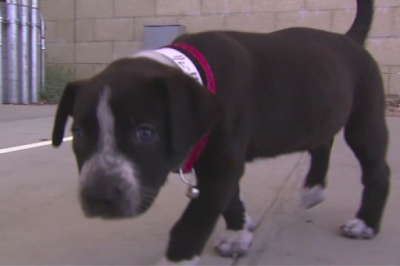Two-Month-Old Puppy Was Rescued After Being Locked In A 133-Degree Car
Title: The Importance of Veterinary Clinics: Ensuring Optimal Health and Care for Our Beloved Pets
Introduction :
Veterinary clinics play a crucial role in safeguarding the health and well-being of our beloved pets. These specialized medical facilities provide essential healthcare services, diagnostic procedures, preventive care, and treatments for various animal species. In this article, we will explore the vital functions of veterinary clinics, the services they offer, and why regular visits to these clinics are essential for maintaining the overall health and happiness of our furry friends.
Section 1: Comprehensive Medical Care :
Veterinary clinics serve as a hub for comprehensive medical care for animals. Highly trained veterinarians and support staff work together to offer a wide range of services, including routine check-ups, vaccinations, surgical procedures, and emergency care. These clinics are equipped with state-of-the-art medical equipment and diagnostic tools, allowing for accurate diagnoses and effective treatments. From dental care and internal medicine to orthopedic surgery and dermatology, veterinary clinics provide the necessary expertise to address various health concerns and ensure optimal well-being for pets of all ages and breeds.
Section 2: Preventive Medicine and Wellness Programs :
Preventive medicine is a cornerstone of veterinary clinics, focusing on keeping pets healthy and preventing potential diseases. Veterinary professionals offer vaccinations, parasite control programs, and regular health screenings to detect and manage potential health issues before they escalate. Additionally, wellness programs are tailored to the specific needs of individual pets, providing guidance on nutrition, exercise, and behavior management. These proactive measures significantly contribute to enhancing the quality of life and extending the lifespan of our animal companions.
Section 3: Emergency and Critical Care :
Accidents and emergencies can occur unexpectedly, and having access to immediate veterinary care is vital. Veterinary clinics provide emergency services to address urgent medical situations, such as trauma, poisoning, or severe illness. They are equipped with emergency rooms, specialized facilities, and a skilled team capable of responding to critical situations promptly. These clinics offer life-saving treatments, blood transfusions, surgical interventions, and intensive care to stabilize and nurse animals back to health. The availability of emergency services ensures that our pets receive timely and effective medical attention during their most vulnerable moments.
Section 4: Supportive Services :
Veterinary clinics extend their services beyond medical care. They provide valuable support and guidance to pet owners, offering counseling on nutrition, behavior, training, and responsible pet ownership. These clinics also play a pivotal role in spaying and neutering programs, controlling pet overpopulation, and promoting community awareness about responsible pet care. Additionally, many veterinary clinics collaborate with animal welfare organizations, participating in rescue efforts and providing shelter, rehabilitation, and adoption services for abandoned or neglected animals.
Conclusion :
Veterinary clinics are much more than medical facilities; they are pillars of support and guardians of our pets' health and well-being. Through their comprehensive care, preventive medicine, emergency services, and supportive programs, they ensure that our animal companions lead happy, healthy lives. As responsible pet owners, it is crucial to prioritize regular visits to veterinary clinics, fostering a strong partnership with our veterinarians to provide the best possible care for our beloved pets. Let us cherish these invaluable establishments that dedicate themselves to the welfare of our furry family members.
A two-month-old pit bull mix puppy was rescued from a sweltering hot car in downtown Riverside, California, this past week.People who saw the puppy trapped in the car called police around 10:30 in the morning. The pup had already been locked in the car for a half hour.

But just because windows are cracked open, does not mean it’s enough air for a dog. When it’s hot outside, temperatures get much hotter inside cars. After they saved the puppy, they did a temperature reading of inside the car which wound up being 133 degrees!

Temperatures can rise extremely quickly in cars, and it can be deadly to leave dogs inside. Dogs should never be left in them, no matter how quick you’re going to be.

Even rolling down a window has been shown to have little effect on the temperature inside a car. Even if you are only going to be gone a few minutes, the safest thing to do is to NOT leave your dog in the car.

The owner was cited $250, but no further details are known.
Post a Comment for "Two-Month-Old Puppy Was Rescued After Being Locked In A 133-Degree Car"